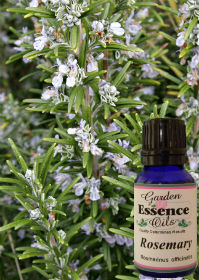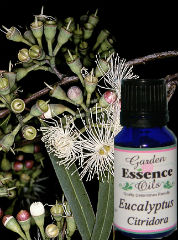Fertility
Also Check out our Syringa line
- click here
Female
Fertility
My
daughter had trouble getting pregnant and this is her
response as to what she did to get her beautiful baby
girl.
From what I have learned, it sounds like a hormone
inbalance. I would recommend her getting in
touch with
Dr. Stengler in California and taking the tests he did
on me. He might recommend more, but she at least
needs the
6-panel hormone test. After the results come
back, she will need to do a phone consultation with
him so he can tell her what she needs to do. The
6-panel hormone test cost $240 (unless the prices have
changed). They also had me take the Thyroid
Hormone test and that one cost $140. The
supplements they had me take were somewhat pricey but
compared to what it usually costs to go the Doctor's
route, it wasn't that much. After a year of
being on their program it probably cost us a total of
$1500 but it was well worth it.
You can get ahold of Dr. Stengler at :
La Jolla Whole Health Clinic
8950 Villa La Jolla Dr Ste A107
La Jolla, CA 92037
(858)450-7120
He does the hormone testing through the Life Wellness
Pharmacy and they have
a website that tells about the testing they do.
Their website is www.lifewellness.com
. I hope this information is useful.
Lynnelle
 For those trying to
conceive. For those trying to
conceive.
This was taken
from HerbalMothering@onelist.com
Linda has some excellent information
To join her list go to https://www.onelist.com
From:
Linda <babe@texoma.net><
Male Fertility
Lifestyle changes that
may be helpful: Some conventional medications can
interfere with fertility. If in doubt, individuals
taking prescription drugs should research the effects of
all drugs they are taking.
Nutritional supplements
that may be helpful:
Vitamin C
Protects sperm from oxidative damage.(1) Supplementing
vitamin C improves the quality of sperm in smokers.(2)
When sperm stick together (a condition called
agglutination), fertility is reduced. Vitamin C reduces
sperm agglutination,(3) increasing the fertility of men
with this condition.(4) Many doctors of natural medicine
recommend 1 gram of vitamin C per day for infertile men,
particularly those diagnosed with sperm
agglutination.
Zinc:
A lack of zinc can
reduce testosterone levels.(5) For men with low
testosterone levels, zinc supplementation raises
testosterone and also increases fertility.(6) For men
with low semen zinc levels, zinc supplements may
increase both sperm counts and fertility.(7) Most
studies have infertile men take zinc supplements for at
least several months. The ideal amount of
supplemental
zinc remains unknown, but some doctors of natural
medicine recommend 25 mg three times per day.
Arginine:
This is an amino acid found in many foods. It is needed
to produce sperm. Most research shows that several
months of arginine supplementation increases sperm count
and quality(8,9) and also fertility.(10,11) However,
some studies have reported that arginine helps few,(12)
if any, infertile men.(13) Nonetheless, many doctors of
natural medicine suggest 4 grams of arginine per
day for several months to see if it will help infertile
men.
Coenzyme Q10
This is a nutrient used by the body in the production of
energy. While its exact role in the formation of sperm
is unknown, there is evidence that as little as 10 mg
per day (over a two-week period) will increase sperm
count and motility.
Vitamin
E:
A deficiency in animals leads to infertility.(15) In a
preliminary human trial, 100-200 IU of vitamin E given
to each man and woman of infertile couples led to a
significant increase in fertility.(16)
Vitamin
B12:
It is needed to maintain fertility. Vitamin B12
injections have increased sperm counts for men with low
numbers of sperm.(17) These results have been duplicated
in double-blind research. (18) Men seeking B12
injections should consult a nutritionally oriented
physician.
Carnitine:
A substance made in the body and also found in
supplements. It appears to be necessary for normal
functioning of sperm cells. Supplementing with 3
grams per day for four months has helped to normalize
sperm in men with low sperm quality in several
studies.(19,20)
SAMe
Preliminary research suggests oral SAMe may increase
sperm activity in infertile men.(21)
Are there any side
effects or interactions? see below
Vitamin C:
Some individuals develop diarrhea after as little as a
few thousand milligrams of vitamin C per day, while
others are not bothered by ten times this amount.
However, high levels of vitamin C can deplete the body
of copper,(22) an essential nutrient. It is
prudent to ensure adequate copper intake at higher
intakes of vitamin C (copper is found in many
multivitamin/mineral
supplements).
Zinc:
Individuals who take 30 mg or more of zinc per day for
more than a few months should balance the zinc with
copper in order to prevent copper deficiency. For 30 mg
per day of zinc, 2 mg per day of copper is usually
taken. For 60-90 mg per day of zinc, 3-4 mg per day of
copper is a reasonable amount. Zinc intake in excess of
300 mg per day may impair immune function. Zinc
has been reported to increase glycosylation with IDDM
(insulin dependent diabetes mellitus)an indicator of
trouble. (This problem does not occur with NIDDM.) While
doctors of natural medicine believe this increase may be
an error, people with IDDM supplementing with zinc
should consult a nutritionally oriented doctor. Zinc
competes for absorption with iron, calcium,
and magnesium. A multimineral supplement will prevent
mineral imbalances that can result from taking high
doses of zinc for extended periods of time.
Arginine:
Individuals with kidney or liver disease should consult
their nutritionally oriented doctors before
supplementing with arginine. Individuals with
herpes (either cold sores or genital herpes) should not
take arginine, because it can stimulate replication of
the virus.
Coenzyme Q10
Congestive heart failure patients taking coenzyme Q10
should not abruptly discontinue taking supplements
without first consulting a physician. An isolated test
tube study reported that the anticancer action of a
certain cholesterol-lowering drug was blocked by
addition of coenzyme Q10.(23) So far, experts in the
field have put little stock in this report because its
results have
not yet been confirmed in animal, human, or even other
test tube studies. The drug used in the test tube study
is not used to treat cancer, and preliminary information
regarding the use of high amounts of coenzyme Q10 in
humans suggests the possibility of anticancer
activity.(24, 25, 26)
Vitamin
E:
Vitamin E toxicity is very rare; supplements are widely
considered to be safe.
Vitamin
B12:
Vitamin B12 supplements are not associated with side
effects.
Carnitine:
Carnitine has not been consistently linked with any
toxicity.
SAMe
(S-adenosyl-L-methionine):
SAMe is normally produced in the liver from the amino
acid methionine, which is abundant in most diets. Folic
acid and vitamin B12 are necessary for the synthesis of
SAMe, and deficiencies of these vitamins results in low
concentrations of SAM in the central nervous
system.
Clinical trials in thousands of people for up to two
years have demonstrated that SAMe is very well
tolerated, much better than the medications it has often
been compared with. Occasional gastrointestinal upset
may be experienced by some people.
Researchers treating people with manic-depression
(bipolar illness) have reported that SAMe could cause
them to switch from depression to a manic episode. SAMe
has been used in a study of pregnant women and was found
to be safe.
Yohimbe:
Herbs that may be helpful: Yohimbe dilates blood
vessels, making this herb useful for treating male
impotence, which can be a cause of infertility. A
tincture of yohimbe bark is often used in the amount of
5-10 drops three times per day. There are also
standardized yohimbe products available for the
treatment of impotence. A typical daily amount of
yohimbine is 15-30 mg. Its
best to use yohimbine under the supervision of a
nutritionally oriented doctor. With kidney disease
or peptic ulcer and pregnant or lactating women should
not use yohimbe. Standard doses may sometimes cause
dizziness, nausea, insomnia, or anxiety. Using more than
40 mg of yohimbe per day can cause dangerous side
effects, including loss of muscle function, chills, and
vertigo. Some people will also experience hallucinations
when taking higher amounts of yohimbe. Foods with high
amounts of tyramine (such as cheese, red wine, and
liver) should not be eaten while a person is taking
yohimbe, as it may cause severe hypertension and other
problems.
Damiana:
Sometimes helpful for men with impotence. Damiana is not
usually used alone; it is believed to be more effective
when combined with other herbs of similar or
complementary activity.
Higher doses of damiana may induce a mild sense of
euphoria. The leaves have a minor laxative effect, which
is more pronounced at higher intakes, and may cause
loosening of stools.
Ginkgo biloba:
By increasing arterial blood flow, may help some
impotent men.(27) Ginkgo is essentially devoid of any
serious side effects. Mild headaches lasting for a day
or two and mild upset stomach have been reported in a
very small percentage of people using ginkgo. There are
no known contraindications to the use of ginkgo by
pregnant and lactating women.
Asian
ginseng:
May also be supportive for male potency.
Used as recommended, Asian ginseng is generally safe. In
rare instances, ginseng may cause overstimulation and
possibly insomnia. Consuming caffeine with ginseng
increases the risk of overstimulation and
gastrointestinal upset. Persons with uncontrolled high
blood pressure should not use ginseng. Long-term use of
ginseng may cause menstrual abnormalities and
breast tenderness in some women. Ginseng is not
recommended for pregnant or lactating women.
Homeopathic Remedies for
Impotence:
Failure to achieve or
maintain an erection and premature ejaculation are
problems that warrant professional attention. Many
factors can contribute to impotence, including diet,
physical activity level, and psychological issues. The
homeopathic medicines described below may provide some
help. The following are a representative selection of
the homeopathic remedies that may help this condition.
It is recommended that a homeopathic practitioner be
consulted.
Lycopodium 30c: This
remedy is considered useful when a man is no longer able
to achieve an erection. An enlarged prostate may also be
present. Men who may benefit from this remedy may lack
self-confidence and be concerned about failing
memory. Lycopodium 30c can be taken once per day
for a week, and then once a week for the following
month.
Argentum nitricum 30c:
If a mans erection fails when coitus is attempted, this
medicine might provide a measure of assistance.
This remedy is most useful for men who are anxious, very
hurried, very warm-blooded, and have a noticeable
craving for sweets and salt. Argentum nitricum 30c can
be taken once per day for a week, and then once a week
for the following month.
Selenium metallicum 30c:
This remedy is for men who still have an abundance of
sexual fantasies but have lost their sexual ability. Men
needing this remedy are often greatly exhausted by even
slight effort and may be losing hair more than
normally. Selenium metallicum 30c can be
taken once daily for a week, then once a week for the
following month.
Hypericum 6c: This
is a good remedy for injuries to areas with high
concentrations of nerve endings, such as the fingers. It
is also effective for easing the pain of puncture wounds
and crushing injuries. Try Hypericum 6c every hour for
up to six times per day, reducing to three to four times
per day until symptoms improve.
References:
1. Fraga CG, Motchnik
PA, Shigenaga MK, et all. Ascorbic acid protects against
endogenous oxidative DNA damage in human sperm. Proc
Natl Acad Sci 1991;88:11003-6.
2. Dawson EB, Harris WA, Teter MC, Powell LC. Effect of
ascorbic acid supplementation on the sperm quality of
smokers. Fertil Steril 1992;58:1034-9.
3. Dawson EB, Harris WA, McGanity WJ. Effect of ascorbic
acid on sperm fertility. Fed Proc 1983;42:531 [abstr
31403].
4. Dawson EB, Harris WA, Powell LC. Relationship between
ascorbic acid and male fertility. In: Aspects of Some
Vitamins,
Minerals and Enzymes in Health and Disease, ed. GH
Bourne. World Rev Nutr Diet 1990;62:1-26 [review].
5. Hunt CD, Johnson PE, Herbel JoL, Mullen LK. Effects
of dietary zinc depletion on seminal volume and zinc
loss, serum
testosterone concentrations, and sperm morphology in
young men. Am J Clin Nutr 1992;56:148-57.
6. Netter A, Hartoma R, Nahoul K. Effect of zinc
administration on plasma testosterone,
dihydrotestosterone and sperm count. Arch
Androl 1981;7:69-73.
7. Marmar JL et al. Semen zinc levels in infertile and
postvasectomy patients and patients with prostatitis.
Fertil Steril 1975:26:1057-63.
8. de Aloysio D, Mantuano R, Mauloni M, Nicoletti G. The
clinical use of arginine aspartate in male infertility.
Acta Eur Fertil 1982;13:133-67.
9. Tanimura J. Studies on arginine in human semen. Part
II. The effects of medication with L-arginine-HCl on
male infertility. Bull Osaka Med School
1967;13:84-9.
10. Schacter A, Goldman JA, Zukerman Z. Treatment of
oligospermia with the amino acid arginine. J Urol
1973;110:311-13.
11. Schacter A et al. Treatment of oligospermia with the
amino acid arginine. Int J Gynaecol Obstet
1973;11:206-9.
12. Mroueh A. Effect of arginine on oligospermia. Fertil
Steril 1970:21:217-9.
13. Pryor JP, Blandy JP, Evans P, Chaput De Saintonge
DM, Usherwood M. Controlled clinical trial of arginine
for infertile men with oligozoospermia. Brit J Urol
1978;50:47-50.
14. Tanimura J. Studies on arginine in human semen. Part
III. The influences of several drugs on male
infertility. Bull Osaka Med School 1967;13:90-100.
15. Thiessen DD et al. Vitamin E and sex behavior in
mice. Nutr Metabol 1975;18:116-9.
16. Bayer R. Treatment of infertility with vitamin E.
Int J Fertil 1960;5:70-8.
17. Sandler B, Faragher B. Treatment of oligospermia
with vitamin B12. Infertil 1984;7:133-8.
18. Kumamoto Y, Maruta H, Ishigami J, et al. Clinical
efficacy of mecobalamin in treatment of oligozoospermia.
Acta Urol Jpn 1988;34:1109-32.
19. Costa M, Canale D, Filicori M, et al. L-carnitine in
idiopathic asthenozoospermia: a multicenter study.
Andrologia 1994;26:155-9.
20. Vitali G, Parente R, Melotti C. Carnitine
supplementation in human idiopathic asthenospermia:
clinical results. Drugs Exptl Clin Res
1995;21:157-9.
21. Piacentino R, Malara D, Zaccheo F, et al.
Preliminary study of the use of s. adenosyl methionine
in the management of male sterility. Minerva
Ginecologica 1991;43:191-93 [in Italian].
22. Finley EB, Cerklewski FL. Influence of ascorbic acid
supplementation on copper status in young adult men. Am
J Clin Nutr 1983;37:553-56.
23. Larsson O. Effects of isoprenoids on growth of
normal human mammary epithelial cells and breast cancer
cells in vitro. Anticancer Res
1994;114:123-28.
24. Lockwood K, Moesgaard S, Folkers K. Partial and
complete regression of breast cancer in patients in
relation to dosage of coenzyme Q10. Biochem Biophys Res
Comm 1994;199:1504-48.
25. Lockwood K, Moesgaard S, Yamamoto T, Folkers K.
Progress on therapy of breast cancer with vitamin Q10
and the regression of metastases. Biochem Biophys Res
Comm 1995;212:172-77.
26. Judy WV. Nutritional intervention in cancer
prevention and treatment. American College for
Advancement in Medicine Spring Conference, Ft.
Lauderdale, FL. May 3, 1998.
27. Sohn M, Sikora R. Ginkgo biloba extract in the
therapy of erectile dysfunction. J Sec Educ Ther
1991;17:53-61.
~~~~~~~~~~~~~~~~~~~~~~~~~~~~~~~~~~~~~~~~~~~~~~
The soul is
healed by being with children.
-- Fyodor
Dostoyevski
You May Also Like:
.
|
 For those trying to
conceive.
For those trying to
conceive.







